Afghanistan: Diary from the ground
… daily struggle for them. Little security, few jobs. CC BY-NC-ND / ICRC There are many ways … to seek work abroad. There are practically no jobs in the region, so leaving is the only …
… daily struggle for them. Little security, few jobs. CC BY-NC-ND / ICRC There are many ways … to seek work abroad. There are practically no jobs in the region, so leaving is the only …
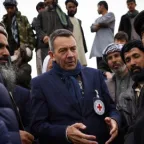
Children born with clubfoot in Somalia, a congenital birth affecting approximately one in every 1000 births globally, are treated at the SRCS centre. The condition, if caught early, is treatable and …
Trauma sensitive practices ensure the mental safety and wellbeing of those managing, creating and moderating content, and those included in the content itself. At the core of a workplace's trauma …

… reason. Her parents believed that respectable jobs suited for women were either teaching or … aggression towards practitioners whose jobs are to save lives is never acceptable. …
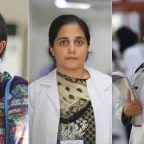
… challenges, in particular re-entering the jobs market. That's where Mr Ayón's GeoAzul …
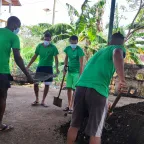
… the camp to desperately look for menial daily jobs in town in order to bring back some food … Most of the times however, they found no jobs. After a stay of around a month and a …
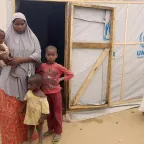
More flexible physical rehabilitation services allow patients to gain time and save money. For nearly three years, the Myanmar Red Cross has been making a difference in the lives of persons with …
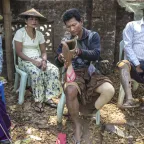
… health-care services so that we can do our jobs. Their trust is vital," says Rafael … they know why we're there and help us do our jobs." Mr Uzcátegui talks regularly to the …
… around here, so I have to make do with odd jobs," continues Vitaliy. "I keep looking, I'm …

The ICRC recognises the need to better address the issue of social inclusion in the physical rehabilitation services it provides globally. To do this, it teamed up with the Adecco Group Foundation to …
Try one of the following resources:
Created in 1863, the ICRC library, alongside the ICRC archives, provides an indispensable documentary reference on the organization itself and international humanitarian law.
International humanitarian law is based on a number of treaties, in particular the Geneva Conventions of 1949 and their Additional Protocols, and a series of other instruments.
Customary international humanitarian law consists of rules that come from "a general practice accepted as law" and that exist independent of treaty law.